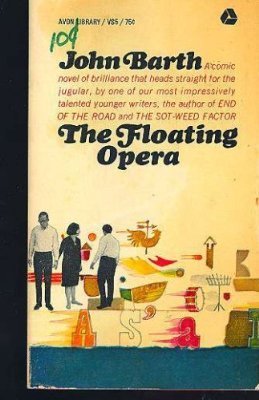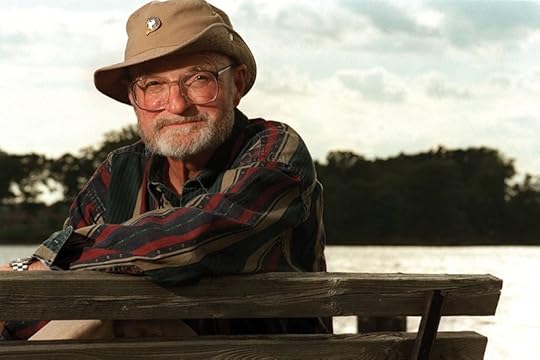What do you think?
Rate this book


240 pages, Mass Market Paperback
First published January 1, 1956
Harrison – a fine, muscular, sun-bronzed, gentle-eyed, patrician-nosed, steak-fed, Gilman Schooled, soft-spoken, well-tailored aristocrat – to his family's understandable alarm was a communist at the time. Not a parlor communist, either: an out-and-out leaflet-writing revolutionary who had sold his speedboat, his Stutz automobile, and God knows what else, to live on when his father disinherited him.
"My Inquiry is timeless, in effect; that is, I proceed at it as though I had an eternity to inquire in...
"So, I begin each day with a gesture of cynicism, and close it with a gesture of faith; or, if you prefer, begin it by reminding myself that, for me at least, goals and objectives are without value, and close it by demonstrating that the fact is irrelevant.
"A gesture of temporality, a gesture of eternity. It is in the tension between these two gestures that I have lived my adult life."
The test of one’s principles is his willingness to suffer for them, and the test of this willingness — the only test — is actual suffering.Despite the above quotation that I've turned into an epigraph, this was truly delightful (in the vein of our old friend Nathan NR Gaddis—where art thou, sir, and wherefore?—who might employ that term, on rare occasion, to award us for a job particularly well done, reviewing-wise) from start to (almost, you'll see) finish.
My heart, reader! My heart! You must comprehend quickly, if you are to comprehend at all, that those masks were not assumed to hide my face, but to hide my heart from my mind, and my mind from my heart. Understand it now, because I may not live to end the chapter! To be sure, each mask hid other things as well, as a false face hides identity and personality as well as nose and mouth; but it was to hide my enigmatic heart that I became a rake, a saint, and then a cynic.

…that’s how this book will work, I’m sure. It’s a floating opera, friend, fraught with curiosities, melodrama, spectacle, instruction, and entertainment, but it floats willy-nilly on the tide of my vagrant prose: you’ll catch sight of it, lose it, spy it again; and it may require the best efforts of your attention and imagination – together with some patience, if you’re an average fellow – to keep track of the plot as it sails in and out of view.
I would take a good long careful time, then, to tell Dad the story of The Floating Opera. Perhaps I would expire before ending it; perhaps the task was endless, like its fellows. No matter. Even if I died before ending my cigar, I had all the time there was.